God Odin Was Exiled From Asgard – The Kingdom Of The Gods – But He Had No Regrets For Breaking Norse Society’s Norms
Ellen Lloyd - AncientPages.com - In Norse society, rules and laws were expected to be followed. Breaking norms led to an individual being shunned and suffering some consequence. Everyone could be punished for not following the rules. No one stood above the law, and gods were also expected to behave according to Norse standards.
The greatest of all Norse gods, Odin engaged in practices completely unacceptable in Norse society. As a result, God Odin was exiled from Asgard, the Kingdom of Norse gods. He was scorned and labeled unfit to be called a god.
However, this didn't bother Odin at all. He knew exactly what he had done and didn't regret it. Nothing stood between him and his ambitions.
As previously discussed on Ancient Pages, God Odin was probably the most complex figure of all the Norse Gods.
In the Norse pantheon, Odin is considered an ‘Allfather’ and ruler of Asgard, but he was never entirely to be trusted.
Odin was a god of magic, wisdom, and war, but his desire to gain knowledge was almost like an obsession.
It is said that the great Odin sacrificed an eye to Mimir, the Norse god of wisdom, in exchange for a drink from Mimir’s well located in Jötumheimr, one of the mysterious nine world of Yggdrasil.
God Odin And Norse Shamanism
In Norse mythology, Seidr is the practice of magic and shamanism. Shamans played a very important role in Norse society. These enigmatic beings were known for their unusual powers, and they were credited with the ability to alter destiny. Beings who mastered Seidr were, therefore, as much feared and respected by people and even the Norse gods.
God Odin and Goddess Freya practiced shamanism. To become a shaman, one had to go through a ritual that involved dying resurrection. This was the only way to gain divine powers. Odin underwent the ritual in the venture for the runes. The word “rune” comes from Old Norse and means “Secret knowledge and wisdom.” God Odin himself was regarded as the “Father of the Runes.” The Vikings believed runes were created when their chief god Odin speared himself to the cosmic world tree, Yggdrasil, hoping to receive secret knowledge.
The most powerful of the shamans was a völva, and her prophecies were feared among Vikings and Norse gods. Norns, known as ‘Shapers of Destiny’ in Norse mythology, were masters of Seidr.
God Odin's quest for knowledge led him to practice shamanism. He did gain supernatural powers and the knowledge he so deeply desired. Still, Odin was punished for his shamanistic practices and exiled from Asgard, the kingdom of the gods, for 9 years!
That a male should practice Seidr was unacceptable and loathsome because it required him to assume a woman's role, both sexually and socially. Men who practiced Seidr were called ergi (Old Norse for “unmanly”). In those days, it was the most horrible thing a man could be called. Men who pursued the practice of Seidr were banished from society, scorned, and laughed at. Practicing Seidr involved divination, clairvoyance, healing, bringing curses on individuals, and controlling the weather. It was something females were supposed to do.
So, naturally, God Odin had to suffer the consequences of becoming involved in the practice of Seidr. Not only was he exiled from Asgard, but he was also scorned for the feminine traits he adapted during the practice of Seiðr. To the pre-Christian Norsemen, his practice made him a transgender unfit to be a God.
God Odin was never embarrassed by this because his greatest ambition was to gain knowledge, and the practice of Seidr made him achieve his goal. God Odin’s shamanic spirit journeys were documented in the Ynglinga Saga and the Eddic poem - Baldur’s Dreams. Odin’s journey to the underworld with his eight-legged horse, Sleipnir, is also chronicled.
Updated on February 20, 2023
Written by Ellen Lloyd – AncientPages.com
Copyright © AncientPages.com All rights reserved. This material may not be published, broadcast, rewritten or redistributed in whole or part without the express written permission of AncientPages.com
More From Ancient Pages
-
 World’s Oldest Shipwreck Discovered In Mediterranean
Archaeology | Apr 10, 2019
World’s Oldest Shipwreck Discovered In Mediterranean
Archaeology | Apr 10, 2019 -
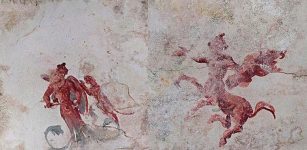 Sphinx Room Discovered At Emperor Nero’s Famed Domus Aurea (Golden House)
Archaeology | May 9, 2019
Sphinx Room Discovered At Emperor Nero’s Famed Domus Aurea (Golden House)
Archaeology | May 9, 2019 -
 Potlatch: Ancient North American Indian Tradition Of Very Generous Gift Giving
Ancient Traditions And Customs | Sep 12, 2016
Potlatch: Ancient North American Indian Tradition Of Very Generous Gift Giving
Ancient Traditions And Customs | Sep 12, 2016 -
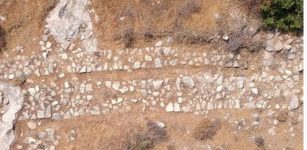 3,000-Year-Old Settlement Studied By Archaeologists In Cyprus
Archaeology | Sep 10, 2022
3,000-Year-Old Settlement Studied By Archaeologists In Cyprus
Archaeology | Sep 10, 2022 -
 Previously Unknown Early Christian Church Unearthed In Ancient City Of Artaxata
Archaeology | Oct 18, 2024
Previously Unknown Early Christian Church Unearthed In Ancient City Of Artaxata
Archaeology | Oct 18, 2024 -
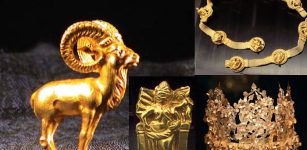 Priceless Artifacts From The Bactrian Hoard Are Missing – Where Are They?
Artifacts | Apr 3, 2022
Priceless Artifacts From The Bactrian Hoard Are Missing – Where Are They?
Artifacts | Apr 3, 2022 -
 Men Are Slowly Losing Their Y Chromosome – Is The Future Of Humanity In Danger?
Featured Stories | Nov 7, 2023
Men Are Slowly Losing Their Y Chromosome – Is The Future Of Humanity In Danger?
Featured Stories | Nov 7, 2023 -
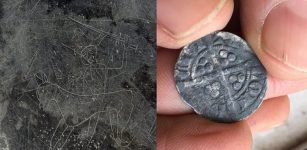 Rare Viking Graffiti And Artifacts Found In Dublin – Depiction Of God Odin Riding Sleipnir Followed By Huginn And Muninn?
Archaeology | Mar 31, 2018
Rare Viking Graffiti And Artifacts Found In Dublin – Depiction Of God Odin Riding Sleipnir Followed By Huginn And Muninn?
Archaeology | Mar 31, 2018 -
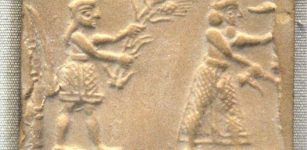 Who Was The Sumerian Ensi?
Featured Stories | Jan 24, 2020
Who Was The Sumerian Ensi?
Featured Stories | Jan 24, 2020 -
 Ancient People In Peru Had A Unique Response To The Looting And Destruction Of Their Ancestors’ Graves
Archaeology | Feb 3, 2022
Ancient People In Peru Had A Unique Response To The Looting And Destruction Of Their Ancestors’ Graves
Archaeology | Feb 3, 2022 -
 Mysterious Kolob – Does The Sacred Star Of The Mormons Exist?
Featured Stories | Feb 4, 2019
Mysterious Kolob – Does The Sacred Star Of The Mormons Exist?
Featured Stories | Feb 4, 2019 -
 Rare Medieval Tattoo Depicting A Christogram Unearthed In Ghazali, Sudan
Archaeology | Nov 9, 2023
Rare Medieval Tattoo Depicting A Christogram Unearthed In Ghazali, Sudan
Archaeology | Nov 9, 2023 -
 Mystery Of The Ancient Reptilian Gods Remains A Complex Subject – Alien Worlds – Part 2
Ancient Mysteries | Feb 9, 2022
Mystery Of The Ancient Reptilian Gods Remains A Complex Subject – Alien Worlds – Part 2
Ancient Mysteries | Feb 9, 2022 -
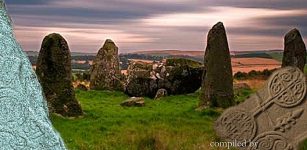 Cruithne: Legendary King, His Seven Sons And The First Celtic Tribe That Inhabited British Isles
Celtic Mythology | May 27, 2023
Cruithne: Legendary King, His Seven Sons And The First Celtic Tribe That Inhabited British Isles
Celtic Mythology | May 27, 2023 -
 Study Of Ancient Skulls Sheds Light On Human Interbreeding With Neandertals
Archaeology | Aug 23, 2022
Study Of Ancient Skulls Sheds Light On Human Interbreeding With Neandertals
Archaeology | Aug 23, 2022 -
 Ancient History Of Chinese Swords
Featured Stories | Aug 20, 2018
Ancient History Of Chinese Swords
Featured Stories | Aug 20, 2018 -
 220 Million-Year-Old Dinosaur Footprint Found On Wales Beach By Girl
Fossils | Feb 1, 2021
220 Million-Year-Old Dinosaur Footprint Found On Wales Beach By Girl
Fossils | Feb 1, 2021 -
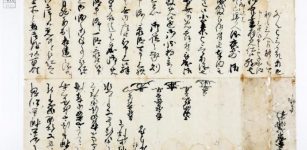 Historical Document Confirms Martyrdom Of Japanese Christian Retainers 400 Years Ago
News | Feb 26, 2021
Historical Document Confirms Martyrdom Of Japanese Christian Retainers 400 Years Ago
News | Feb 26, 2021 -
 Mystery Of The Black Irish People: Who Were They?
Civilizations | May 24, 2016
Mystery Of The Black Irish People: Who Were They?
Civilizations | May 24, 2016 -
 Glooskap (Gluskap): Mythical Hero Who Defeated Evil Sorcerers And Demon Followers
Featured Stories | Jan 25, 2016
Glooskap (Gluskap): Mythical Hero Who Defeated Evil Sorcerers And Demon Followers
Featured Stories | Jan 25, 2016


